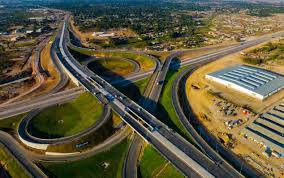
IN the run-up to the 2023 general elections, President Emmerson Mnangagwa and his Zanu PF party came up with a catchy slogan: Nyika inovakwa nevene vayo (a country is developed by its owners).
There is a temptation here to interpret the slogan as “a country is developed by its people”, but in the context of what has happened in the country since, the term “owners” fits the bill perfectly.
The greed of the elite is illustrated by the inflated costs of the Trabablas Interchange, from the already questionable cost of US$88 million by US$26 million.
Trabablas is a troubling tale of opacity, ballooning costs and a slogan that, in hindsight, may have been more literal than metaphorical.
“Nyika inovakwa nevene vayo” may have been a rallying cry in the 2023 general election campaign and at the time, it evoked a sense of patriotic duty and collective progress.
But the murky financial dealings surrounding the interchange have revealed that perhaps it is not “the people” who are building the country, but a select few “owners” with unchecked access to national resources.
The interchange’s cost was originally pegged at US$88 million, a figure that was already raising eyebrows in a country where public procurement is notoriously opaque.
But under questioning in Parliament, Finance minister Mthuli Ncube revealed that an additional US$26 million was spent pushing the final tab to a staggering US$114 million.
- Budget dampens workers’ hopes
- Govt issues $24 billion Covid-19 guarantees
- Letter to my People:They have no answers for Nero’s charisma
- ZMX to enhance farm profitability
Keep Reading
The justification? “Unforeseen project variations,” “relocation costs” and an extraordinary list of add-ons, from drainage systems to 12 bridges and millions in supervisor fees.
To be clear, infrastructure development is necessary and roundabouts like Mbudzi were notorious bottlenecks.
But what Zimbabweans are questioning — and rightly so — is why this project cost nearly US$30 million more than initially budgeted and why Parliament was seemingly kept in the dark about this overspending.
Ncube’s explanations have been a moving target.
First, the US$26 million from the International Monetary Fund’s Special Drawing Rights (SDRs) was described as a deposit.
Later, it became part of an unplanned overrun to cover resettlement and additional infrastructure.
Even more puzzling is Ncube’s claim that he did not need to return to Parliament for approval because the powers had already been “extended to [him]” — a view that undermines the principle of legislative oversight and fiscal accountability.
At the heart of this debacle is a fundamental issue: Who is holding the executive accountable?
When a project like the Trabablas Interchange can quietly overshoot its budget by tens of millions of dollars — using funds from international financial institutions and without parliamentary scrutiny — the risk of corruption and abuse multiplies.
This is not just about dollars and cents.
It’s about the social contract between citizens and those in power.
Public money — whether borrowed from contractors like Fossil Mines or drawn from International Monetary Fund allocations — is not free.
It will have to be repaid, with interest.
And in the absence of transparency, Zimbabweans are left to wonder: Was this money spent wisely? Who benefited? And at what cost to the taxpayer?
In a country where hospitals lack basic medicines, where teachers and nurses are underpaid, and where millions remain unemployed, spending US$114 million on a single interchange — with shifting justifications and little oversight — is more than just poor governance. It is a moral failing.
Zimbabweans deserve infrastructure.
But they also deserve honesty, accountability, and value for money.
If “Nyika inovakwa nevene vayo” is to mean anything beyond campaign rhetoric, then its “vene” — the people — must be respected, not robbed in the name of development.
The Trabablas Interchange should stand not just as a concrete structure, but as a cautionary monument to how easily slogans can mask state capture — unless citizens demand more.
The country is not only being developed by its “owners”, they are stealing from it blind with impunity too!






